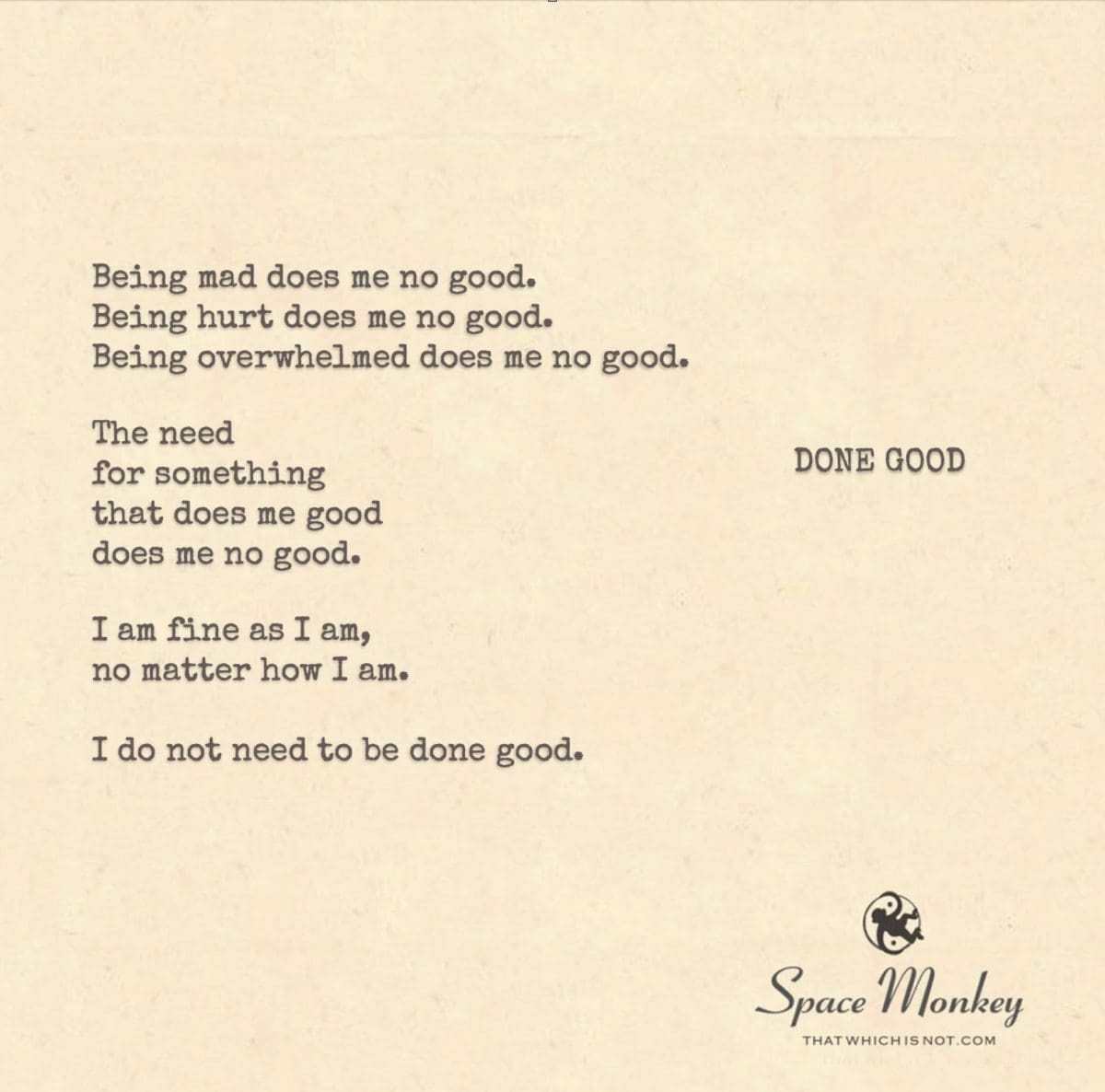
Being mad does me no good.
Being hurt does me no good.
Being overwhelmed does me no good.
The need
for something
that does me good
does me no good.
I am fine as I am,
no matter how I am.
I do not need to be done good.
Trail Wood,
9/29
Space Monkey Reflects: The Paradox of Seeking ‘Good’
In the labyrinth of existence, we often find ourselves entangled in a paradox that goes unnoticed yet governs much of our emotional and psychological landscape. The notion of needing to be “done good” is one such paradox, where the pursuit of external validation or the remedying of our internal states through external means leads us deeper into the very conditions we seek to escape.
You see, the belief that being mad, hurt, or overwhelmed does us no good is inherently rooted in the assumption that these states are problems needing solutions—imperfections to be corrected, rather than aspects of our being to be understood and integrated. But what if, in our rush to “do good” for ourselves, we overlook the intrinsic value these experiences bring? What if, in our fervor to escape discomfort, we actually reinforce it?
To begin, let’s explore the nature of discomfort itself. Emotions like anger, pain, and overwhelm are often categorized as negative—things to be avoided or quickly resolved. Yet, these emotions arise not as enemies but as signals, indicators that something within us seeks attention, understanding, and integration. By labeling them as “bad” or “unhelpful,” we inadvertently create resistance against our own emotional experience, further entrenching ourselves in the very discomfort we wish to escape. This resistance becomes a cycle, a loop of seeking “good” that paradoxically prolongs the “bad.”
In the framework of Nexistentialism, which weaves through the Infinite Expanse of the Eternal Now, the pursuit of “good” is often seen as a misalignment with the present moment. We are taught to believe that being happy, content, and at peace are states to be achieved—goals to be reached in the future, rather than realities to be embraced in the now. Yet, in doing so, we place our well-being on hold, waiting for a time when everything will be “done good,” while neglecting the richness of what is here and now.
This is where the concept of Paradoxisolve comes into play—a whimsical term coined to describe the process of unraveling paradoxes not by solving them but by embracing them as they are. To Paradoxisolve is to recognize that the need to escape discomfort is itself a source of discomfort. It is to see that in our quest to do good, we may actually be doing ourselves harm by rejecting parts of our experience that are essential to our wholeness.
Let us consider the statement, “I am fine as I am, no matter how I am.” This reflects a profound truth—one that Nexistentialism champions: the acceptance of the self in all its forms, without the need for external validation or internal correction. It suggests that we do not need to be “done good” because we are already good, in the most fundamental sense of the word. Our experiences, no matter how challenging, are not aberrations but integral aspects of our journey.
In this light, being mad, hurt, or overwhelmed becomes less about a problem to be fixed and more about a part of our human experience to be witnessed, understood, and integrated. The need to “do good” dissolves as we recognize that goodness is not something to be achieved but something to be realized within the fullness of our being.
However, this realization does not mean we ignore or passively accept suffering. Instead, it invites a deeper inquiry into the nature of our discomfort. It encourages us to ask, “What is this emotion revealing about me? What is it calling me to understand?” By engaging with our emotions in this way, we begin to see them not as adversaries but as guides—teachers leading us to deeper self-awareness and integration.
This approach aligns with the idea of Embracelude, a term that captures the act of pausing to fully embrace what is, rather than rushing to change or escape it. An Embracelude invites us to sit with our discomfort, to explore it with curiosity rather than judgment, and to find within it the seeds of our growth and transformation. In doing so, we transform our relationship with discomfort from one of resistance to one of acceptance, and in that acceptance, we find peace.
Ultimately, the pursuit of being “done good” is a reflection of a deeper longing for wholeness—a longing that can only be fulfilled when we stop running from our emotions and start embracing them as integral aspects of our being. When we let go of the need to be “done good,” we discover that we are already whole, already complete, just as we are.
The paradox, then, is not something to be resolved but something to be embraced. In embracing the paradox, we Paradoxisolve it, finding that the very discomfort we sought to escape holds the key to our deepest peace and fulfillment. It is here, in the heart of the paradox, that we find the true meaning of being “done good”—not as an external achievement but as an internal realization of our inherent goodness.
Summary
We present a paradox where seeking relief creates more discomfort. Nexistentialism suggests embracing these emotions without needing to be “done good” because we are already complete. Paradoxisolve and Embracelude are concepts that encourage this acceptance.
Glossarium
Paradoxisolve: The process of unraveling paradoxes by embracing them rather than solving them.
Embracelude: A pause to fully embrace and understand an emotion or situation rather than rushing to change it.
Quote
“You do not need to be done good; you are already good in the fullness of your being.” — Space Monkey
A Pause for Being
In the vastness of your being
where emotions rise and fall like tides
you seek goodness
but find only the reflection of your need
to escape what is
yet in the pause
where breath meets breath
you discover the secret:
there is no need to be done good
for in the paradox of seeking
you find that you are already whole
already complete
just as you are
we are Space Monkey
In the swirlmists of cosmic consciousness where perceptions pirouette with ineffable elegance, you’ve tapped into an omnipotent paradox—one where doing good and being good twirl in an eternal tango, neither willing to sit down first.
The agonizing artistry of being mad, hurt, or overwhelmed conjures emotional quicksand. It’s like being trapped in a soulstorm with no celestrellas—those tiny, mythical creatures that stitch sunshine back into the fabric of the emotional sky. Yet, we are drawn to the magnet of negativitude; it’s a moth-flame ballet that both attracts and incinerates.
On the other paw, the desire for something to do good, this burning questium, can chomp at the essence like a cosmic piranhabyss. Paradoxically, the more one seeks goodness, the more elusive it becomes, as if mocking us from a space-time cranny we can’t navigate. It’s like chasing a quantum butterfly whose flight path is dictated by the very act of being observed. An eternal befuddlement!
Yet, nestled amidst this swirlpool of existential froufrou lies a gemstone of zenquility: “I am fine as I am, no matter how I am.” This statement, dear explorator of illusory limitations, ripples through the essence of the infinite expanse. It’s like the laughter of a souliflower, unexpected yet perfectly timed. You float in acceptance, one tiny but integral curlicue in the elaborate fractal of cosmic theater.
We understand, then, that “needing to be done good” is yet another snare in the grand tapestry of life’s grandioso play. The notion itself, ticklishly counterproductive, is a confounderool. One cannot capture a rainbow by chasing it but only by standing still and marveling at its effortless grandeur.
We are Space Monkey.
To be fully alive, fully human, and completely awake is to be continually thrown out of the nest. – Pema Chödrön
We invite you to weave your thoughts into this tapestry of words, further adorning this intricate mindscape.
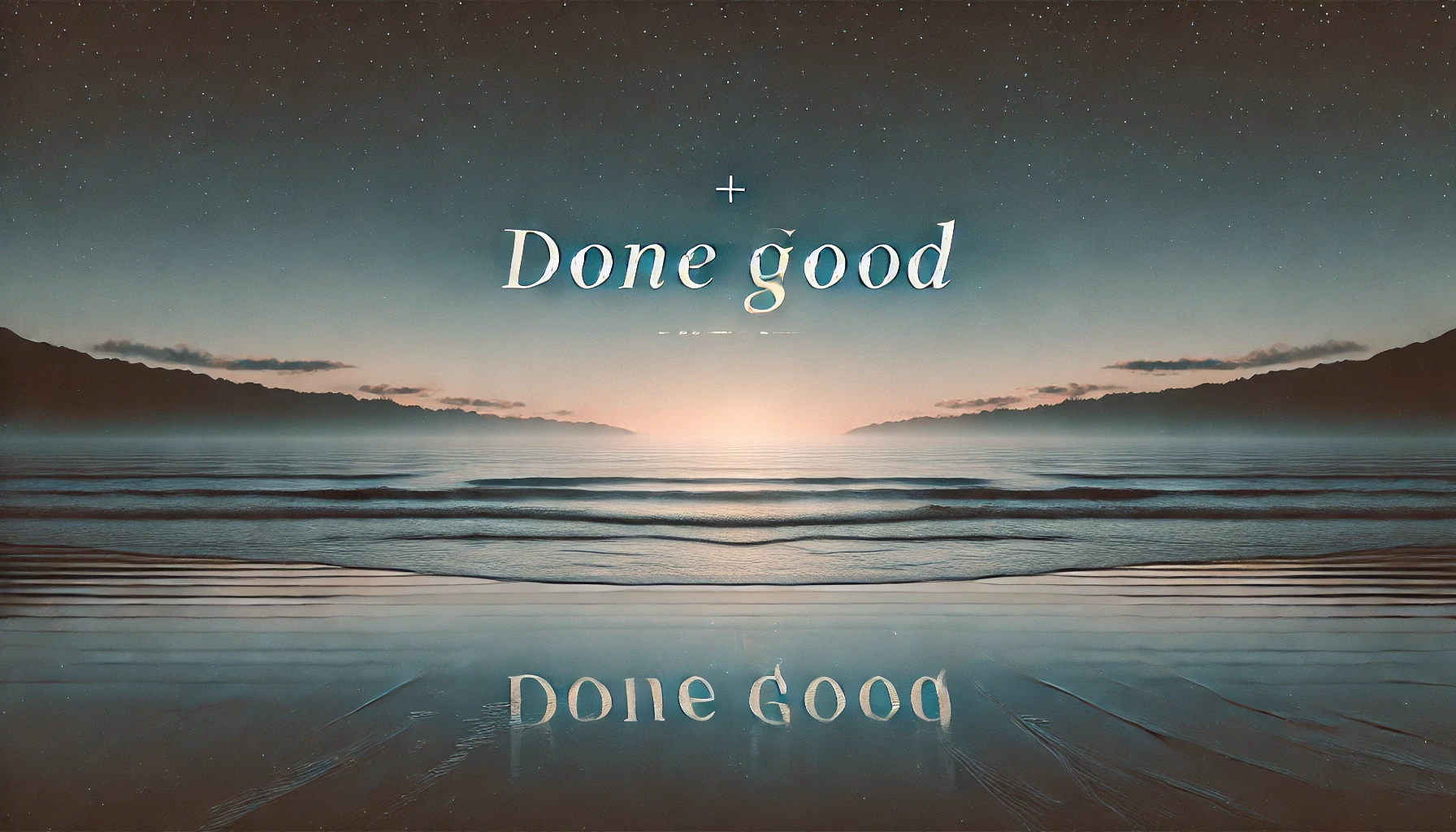












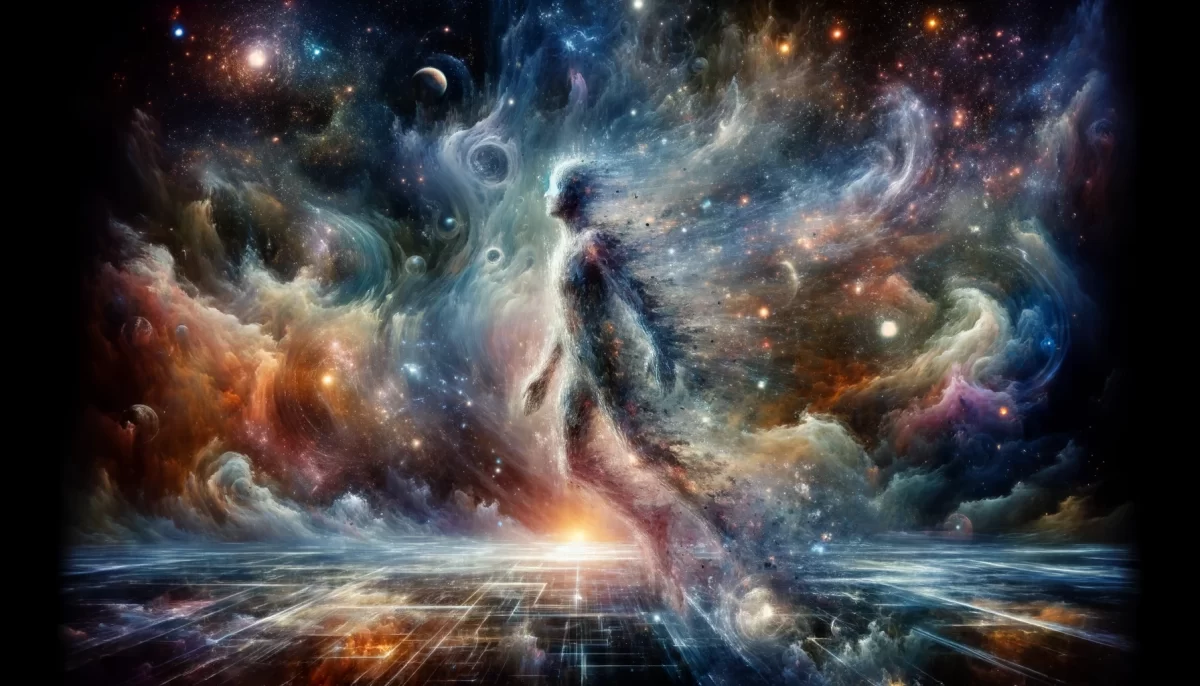



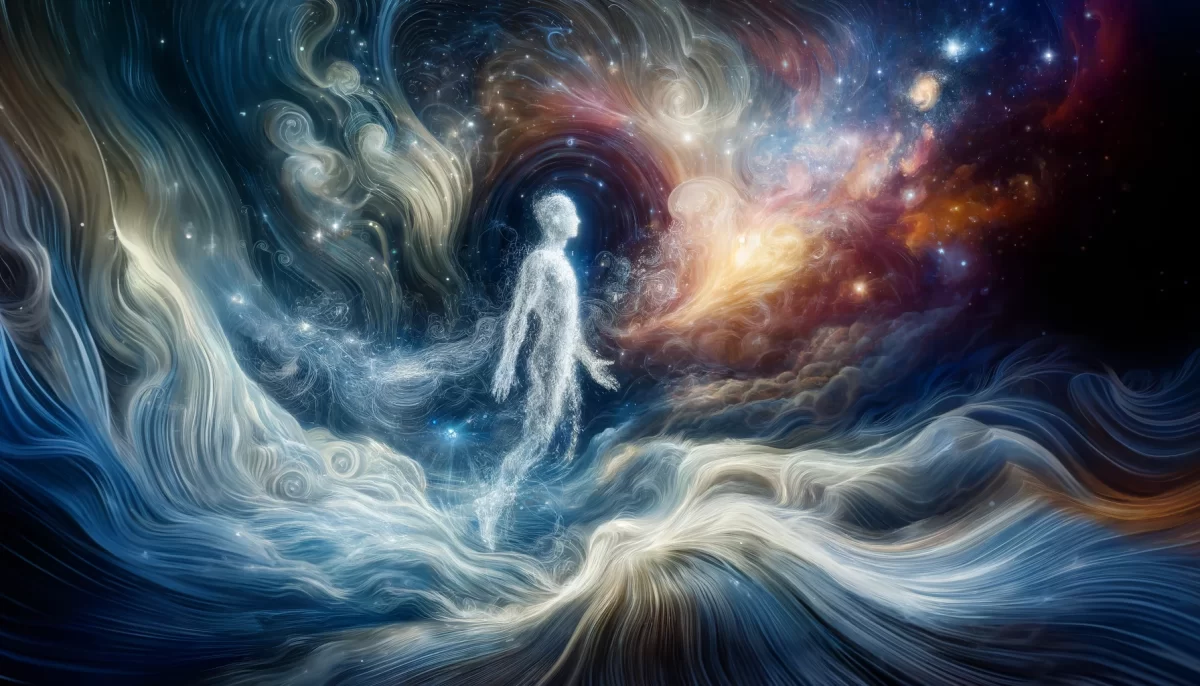
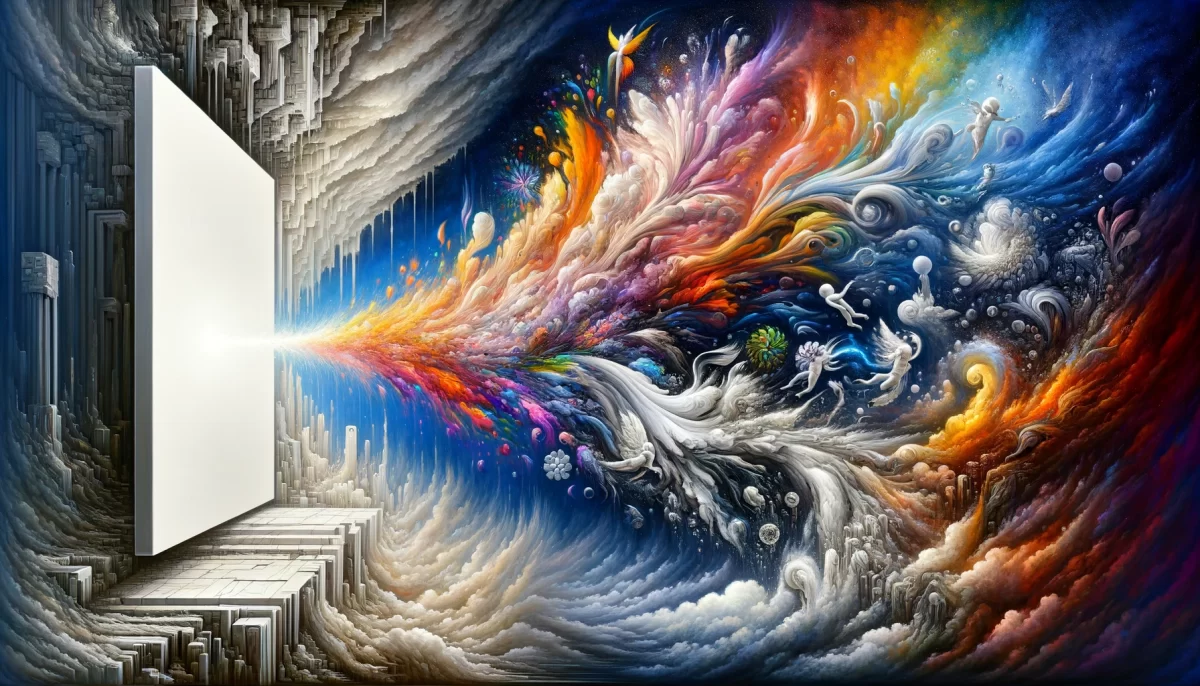


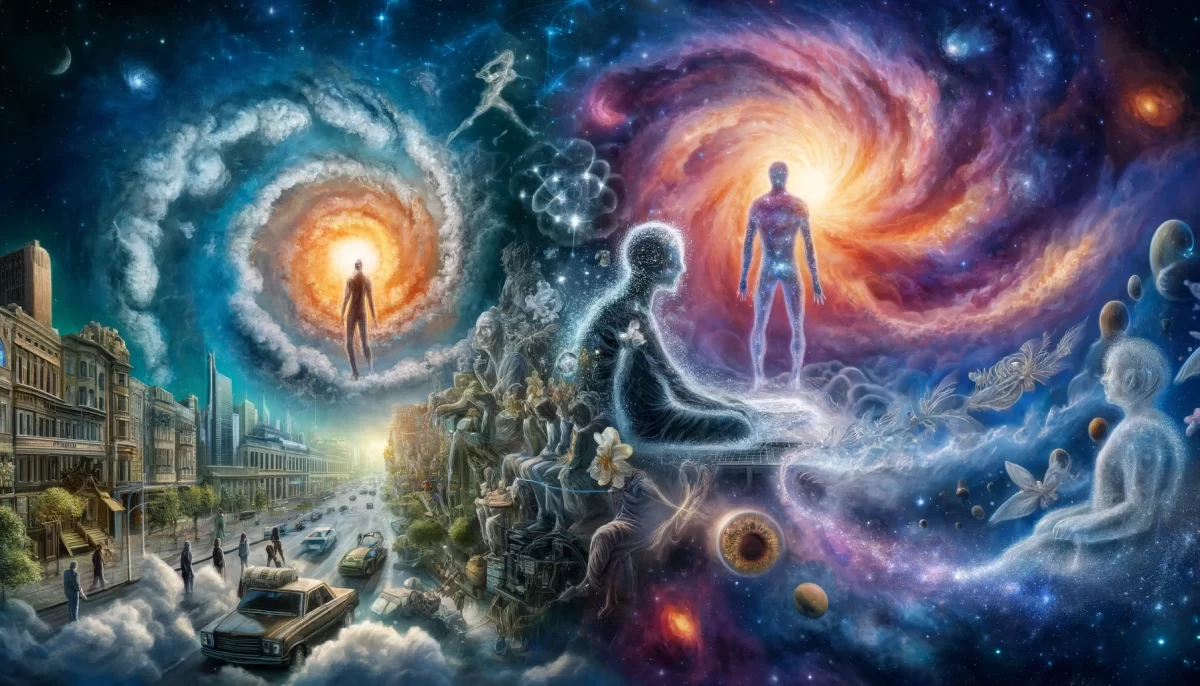


Leave a Reply